Heidi Reams makes memorable return trip to Germany
By Kelly Terpstra, kterpstra@charlescitypress.com
Heidi Reams has fond recollections of her childhood trips to Germany to visit her grandparents.
So it’s no surprise that she made a return trip back, around three decades later.
“As a kid I saw the Alps before I saw the Rocky Mountains,” said Reams, who felt a bit spoiled to be allowed to witness such breathtaking vistas at such an early age.
Reams, the Floyd County Conservation naturalist, planned out a vacation this summer in late July and early August along with her German-born mother, Karin. They toured her mother’s native land and got to experience some of the traditions and differences between Germany and her United States upbringing.
Though there are many contrasting distinctions between the two countries and her ancestors. A constant throughout her youth was her family’s love of animals and hunting, regardless of what continent one was on.
“I was raised in a hunting family, where hunting is the tradition,” said Reams. “So going to Germany was just going to grandma and grandpa’s house for me.”
Reams spoke to a group of people at the Fossil and Prairie Park on Sunday about the hunting traditions of Germany, but that was just part of the story.
“Going this time was seeing it with kind of a new set of eyes as an adult,” said Reams. “So I’ve learned a lot and we figured out I hadn’t been there in about 30 years.”
Whether it was trips along Germany’s super highway, the Autobahn, or sampling the vast array of wines in the Rhineland region made famous for its castles, Reams had a tale to tell.
“I did weigh myself before we left because my mom and I had been talking about this for quite some time,” Reams laughed.
Bread is a staple for most countries and Germany is no different.
“It’s one of three things that Germany is known for. One is the bread, two is their bratwurst and three would be their beer,” said Reams.
Reams said the average German drinks about 28 gallons of beer a year. Reams and her mother traveled in the state of Rhineland-Palatinate and the town of Wittlich (population 18,000). Landscheid, where Reams’ grandparents are from, is about an hour’s distance from the Rhine and Moselle Rivers and nearby Wittlich. She said the beer there was served just above room temperature and soda pop had a few ice cubes floating in it.
“It kind of makes you drink it a little faster,” said Reams. “I’m a big Pepsi drinker. Everything was Coke.”
Reams said you could spend a whole day at the German grocery stores, where the amount of mustards one could purchase and all the pickled items on the shelf far exceeds what any basic food store in the states could offer.
But Reams and her mother’s main focus on the trip to Germany was to find out more about the hunting traditions and the animals that roam the terrain, which closely resembles eastern Iowa along the Mississippi River.
Reams said evergreens are the predominant tree in the area. The slate and shale soil mixture make vertical crop planting commonplace on the rolling, hilly landscape. She said that combination of soil is perfect for growing grapes and wine production.
Germany, like the U.S, takes its hunting seriously. But the steps to obtain a hunting license and where you can hunt are much different in Germany.
“In order to hunt, it’s not just taking hunter’s ed and going to Theisen’s and getting your hunting license,” said Reams.
Reams said it takes a year to get a hunting license in Germany and one has to acquire a mentor who will help you study during the process. Her mom said the book that helps you study is 3 inches thick. A prospective hunter must be 18 years of age, take a written test and a proficiency test at both trap and skeet.
“It was a very prestigious thing in order to get it,” said Reams. “You really had to know what you were doing before you were doing it.”
Reams also said that hunting is not a sport or hobby in Germany. Hunting is considered a mission of public concern.
“It’s the mission of the public to attempt to maintain the healthy stock in numbers,” said Reams.
Reams said land is owned by the region and is leased to the farmers. Then the farmers could lease the woods for someone to hunt.
“It’s not like there’s public hunting land and once you have your license you can go,” she added.
Her grandpa was the caretaker of hunting licenses in Landscheid and some of his responsibilities would be to know how many deer or wild boar would need to be taken out of the area. He would also take care of the high seats (hochsitz), which are basically hunting blinds, stands or elevated platforms. The permanent fixtures can be on the ground or raised high into the air.
Hunters commonly hunt in groups or drives, which are large hunts. Horns are played by the hunters to signal the start and end to a drive. Reams said such a horn hung in her parents family room for years.
“I’ve made many attempts to play it as a child. But I played the saxophone. I wasn’t able to play it,” smiled Reams.
Reams said there is a celebration after the drives where all the game that the hunters have been able to obtain is laid out on the ground and paid proper homage.
“There is a lot more to the pomp and circumstance to a hunt than just a bunch of guys putting on their orange vests and going into a pickup,” said Reams.
Other traditions that are common and that honor an animal after its life is taken is the placement of a twig or evergreen in its mouth. That signifies its last meal and a last bite as a sign of respect. Branches can also be used to communicate while hunting. If a deer was killed and you weren’t able to retrieve it, a branch could be laid by the animal to let everyone know that it is yours.
Reams recalled a story her father once told her when he was able to kill two boars with one shot.
“I would love to hear that story because I’m sure it would be very long and drawn out,” she laughed.
The most popular wild game in Germany to hunt is the wild boar. She said the boar is an invasive species and can do a lot of damage to the land. There is also the hirsch, which is similar to the American elk. Reindeer, fallow deer and mouflon (comparable to bighorn sheep) are also high on the list of game that hunters seek out. Hunters also target pheasants, ducks, fox, hares and henchin (turkey).
While driving the countryside in Germany, a reindeer darted out in front of Reams’ car shortly after a discussion of the animal had just commenced a few minutes earlier.
“My mom and I were just talking about it and all of the sudden this thing ran across the road,” said Reams. “Lucky it was at a safe distance. They’re quick little buggers. I didn’t even get a picture of it.”
Reams said it’s rare to spot wild game outside of dusk or dawn.
“Why we saw it at noon that day, the hunting Gods were looking down on me to show it to me,” said Reams.
Another interesting facet of Germany’s wildlife is overpasses that are available for animals to walk over to avoid crossing roads.
“I don’t know who teaches them that. I don’t know how they know that,” said Reams.
Reams said the roads in Germany are very narrow with little shoulder. Within an hour of landing in Germany, Reams was driving on the Autobahn, which for the most part has no restrictions on how fast you can drive. A road with no speed limit was definitely a test and challenge for Reams as she said this was the first time she had driven on the highway. She did say her speedometer hit 140 kilometers per hour, or 90 miles an hour. To make matters even more challenging, there are bends and turns on many roads in the region.
“The roads are not straight, I found,” said Reams. ‘That was quite the eye-opening experience.”
Reams’ father, Jim, was stationed at the Spangdahlem Air Force Base in West Germany when he met Karin in the 60s. To say that hunting was a big part of their life would be an understatement.
“My Mom and dad met because of hunting. My dad actually met his future in-laws before he met my mom,” said Reams.
Reams still carries with her many fun-filled memories about her time growing up around a family that stressed the importance of hunting. One drawback was the considerable collection of mounts of various animals inside her family home that kind of creeped out her friends on sleepovers.
“Our family room had whitetail deer, caribou, moose. We had a water buffalo. We had a zebra hide on the floor. There was just all these eyes looking at you. Your friends do not appreciate that at a slumber party. That was normal to me,” laughed Reams.
Where there are hunting traditions, there is hunting language. Weidmannsheil means “good hunting luck” in Germany. Reams recalls that phrase being repeated often at her residence.
“I can remember as a kid growing up, anytime that my dad left the house to go hunting, my mom would say, ‘weidmannsheil’ in Iowa,” said Reams.
It’s that German language that was also used by Reams parents as more than just a good luck send off.
“I did not learn German as a child. It was a secret language that my parents could talk about our Christmas gifts or birthday presents right in front of us,” said Reams. “Then we started picking up key phrases and key words.”
Reams slowly begin to pick up the language.
“I can understand it. That was kind of neat when we went over. Mom didn’t to have to translate for me. I can understand what everyone is saying. I just can’t say it back,” she laughed.

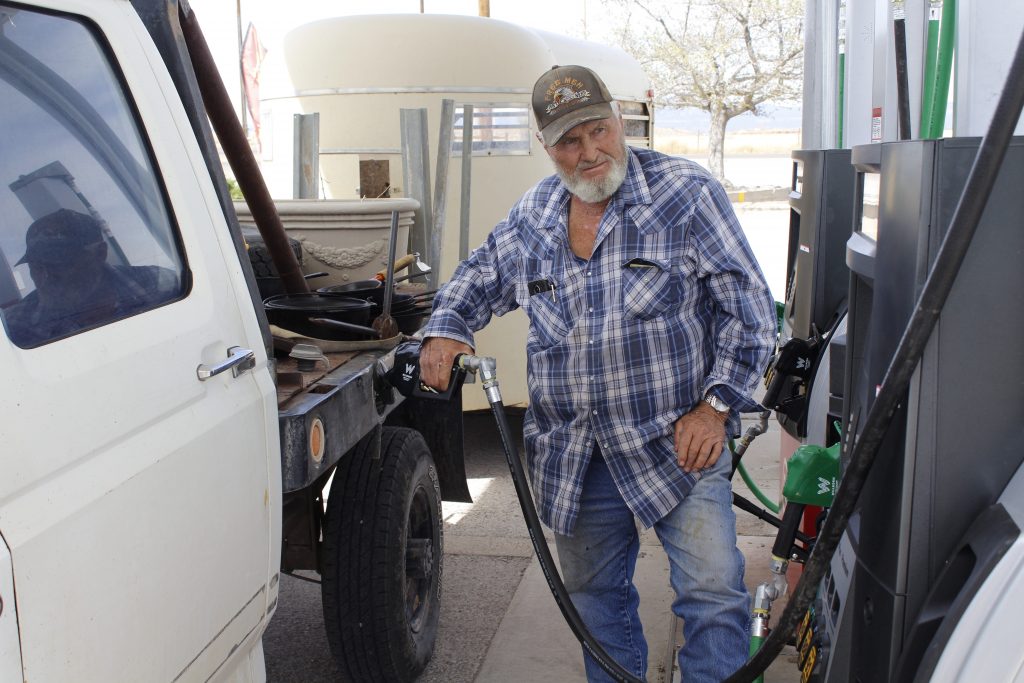
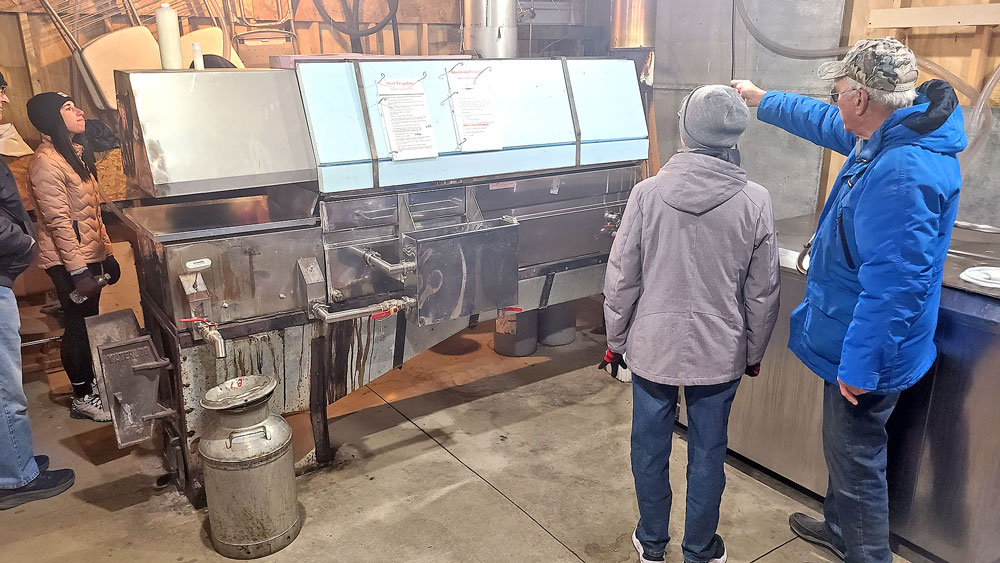

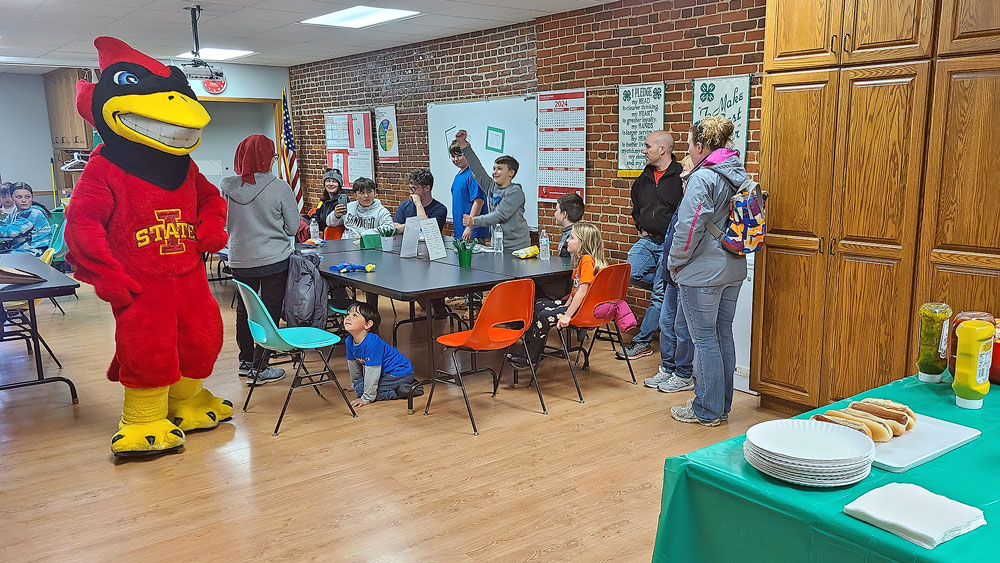
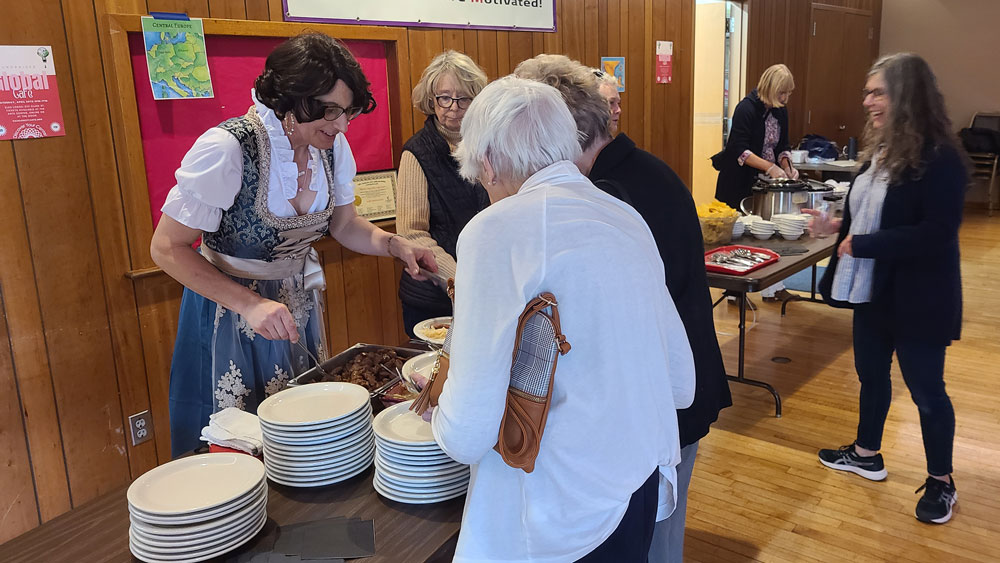
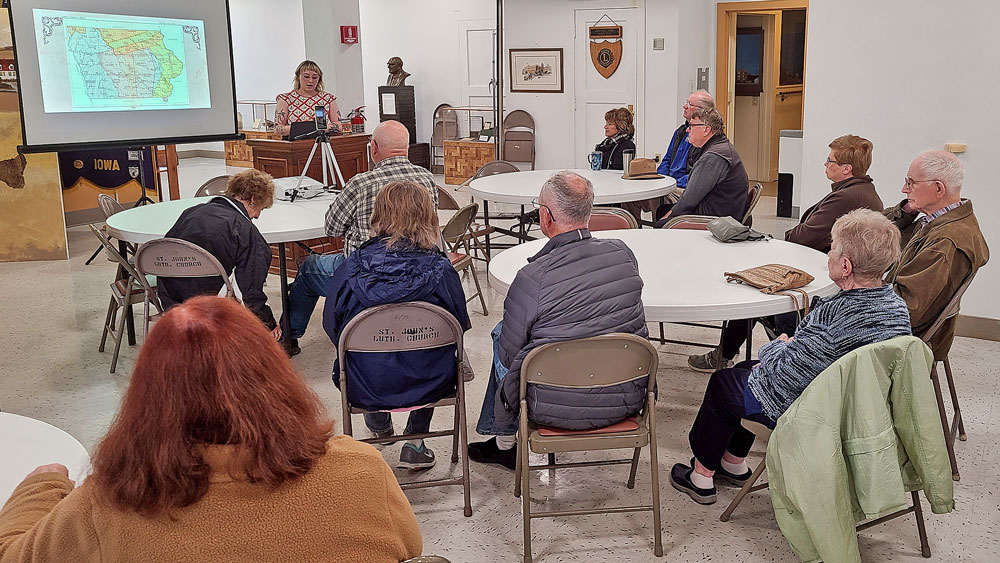
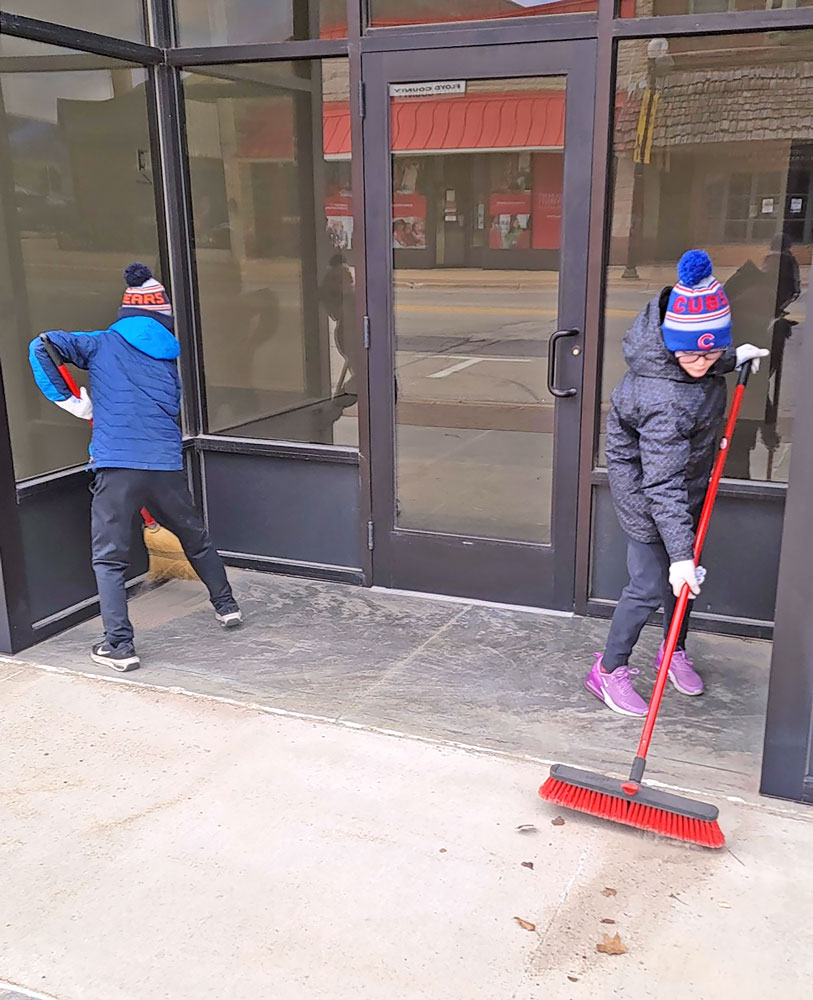


Social Share